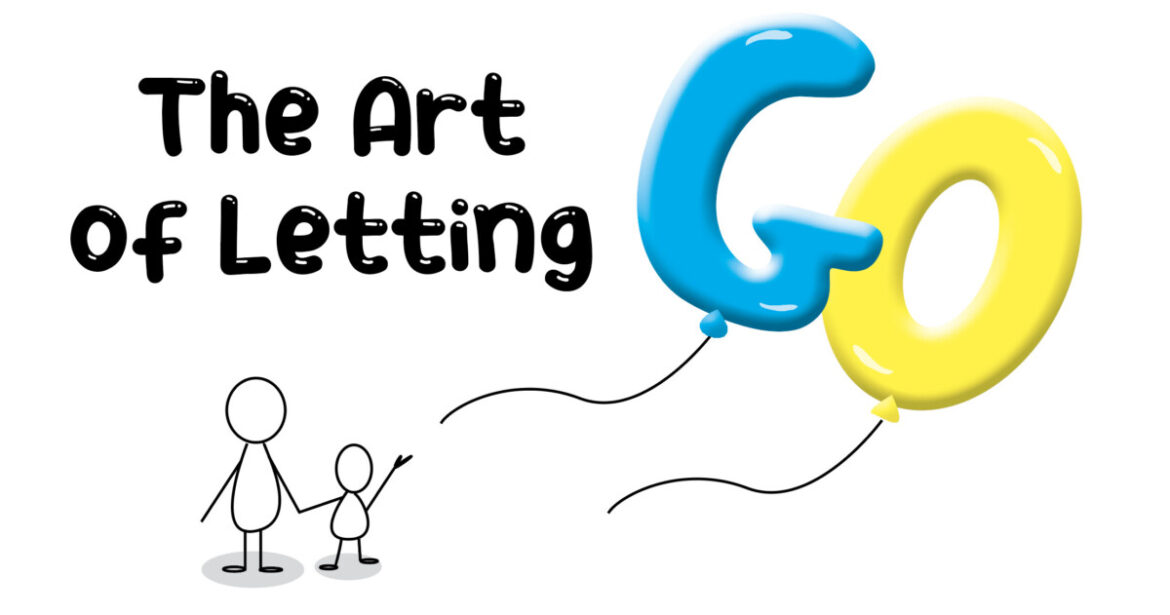Annika Khurana, Executive Editor
@akhuranacourant
Picture this: you’re sitting with your “friends” at lunch and all of a sudden, they start talking about how much fun they had together over the weekend. You weren’t in the loop for their plans and even though you don’t care for them all that much, you still would’ve wanted to be included. Next, picture this: you’re casually strolling along in the hallway and someone comes up behind you, yelling “move, you’re in my way!” You’ve never seen this person before, but without a thought, you allow them to pass you. This encounter replays in your mind along with thoughts of what could have been said for the rest of the day.
Why is it that you allow these seemingly unimportant scenarios to have power over your mental well-being? I’d like to propose a solution: the subtle art of letting go. Sounds positively magical, doesn’t it? Well, the catch is, it takes years and years of practice and self-awareness to master this art; time that not everyone is willing to put in, because, quite frankly, mastering this art brings with it many ups and downs.
By no means am I the most qualified to talk about this subject. I’ve held a secret from you, reader: I haven’t mastered the art of letting go. In my experience working towards this goal, however, I have come to understand that it requires different approaches. One must ask themself what, exactly, it means to “let go”, and it’s natural that they may have a variety of responses.
Let me run you through a situation: you’ve just gotten back your last math test and the results are truly not what you were expecting-in fact, this is the worst you’ve done on a test all year. You think back to the night you spent preparing for the test and realize you procrastinated your studying and didn’t put in more than 30 minutes of review. At this point, there is absolutely nothing you can do to change your grade, so you’re left with a choice: should you allow yourself to become stressed over the grade, allowing it to consume you, or should you let it go?
I understand that this may seem like an obvious choice-why would anyone consciously choose to be stressed? The truth of the matter, however, is that this choice isn’t conscious unless you recognize it as so. It is so easy to spiral into the negative headspace of one bad grade equaling denial from college-trust me, I speak from experience.
I’ve had conversations with my counselor, Ms. Reihl, about this exact subject, and the perspective she shared with me has brought me more peace. “Control the things that you can control,” Ms. Reihl said. “There are so many elements of academics as a whole that are out of your control. Remind yourself to have control over the things that you can, whether it’s giving yourself adequate time to prepare for a test or getting a head start on your college applications.”
This concept of control is not just limited to academics. Take someone saying something hurtful to you, for instance. While you cannot control what that person says or the way they act, you can be conscious of your own feelings and let go of a part of yourself that would have taken this person’s statements personally.
Wait a minute…What does it truly mean to “let go” and how is it that we define this arbitrary concept? And when should we let go? Here’s an example I saw in a video that really stuck with me: imagine someone comes up to you and starts making fun of your blue hair-but your hair isn’t blue. They continuously poke fun at you, attracting the attention of other people, but you confidently know that your hair isn’t blue. When you go home that day, you feel rather unaffected by the instance.
So, what does this mean? Well, when your knowledge of yourself is secure, you will remain largely unaffected by the comments of other people, thus allowing you to let go of negative emotions. Believe it or not, it is equally as important to know if something is even worth letting go. For example, the emotions associated with a loved one passing away aren’t something you can simply let go of. The grief that comes with such a tragedy is what teaches you what life is capable of bringing, and an experience like this simply cannot be blown away.




